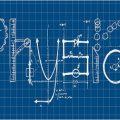PTE考生目前最大的问题之一就是练习题缺乏。除了有限的基本官方书(PLUS,Testbuilder, OG)之外,就没有题了。很多英语基础不是很扎实的同学很难找到练习材料。墨尔本文波雅思PTE培训学校专门为墨尔本,悉尼PTE考生准备了适合PTE听力阅读练习的科学60秒。各位PTE同学可以练习PTE听力中的summarise spoken text和PTE口语中的retell lecture,练习记笔记技巧和复述。废话少说,下面开始:
Absence (of Weight) Makes the Heart Grow Rounder
听力内容:
60秒科学节目(SSS)是科学美国人网站的一套广播栏目,英文名称:Scientific American – 60 Second Science,节目内容以科学报道为主,节目仅一分钟的时间,主要对当今的科学技术新发展作以简明、通俗的介绍,对于科学的发展如何影响人们的生活环境、健康状况及科学技术,提供了大量简明易懂的阐释。
When astronauts float weightless in space, their muscles don’t need to work as hard as on Earth. Muscles therefore atrophy during a long mission, which can cause trouble when space travelers return home. But what happens to that most vital of muscles, the heart?
To find out, 12 astronauts learned how to do ultrasound scans of their hearts. Then they recorded the organ’s shape before, during and after a stint on the International Space Station. The scans showed that while in microgravity the astronauts’ hearts deformed into more spherical shapes. Back on Earth, they stretched back into their usual elongated forms. The work was presented at the annual scientific session of the American College of Cardiology. [Chris May et al, Affect of Microgravity on Cardiac Shape: Comparison of Pre- and In-Flight Data to Mathematical Modeling]
Knowing how weightlessness changes the heart could help mission planners prevent long-term damage to astronauts’ cardiovascular systems due to long space voyages. Astronauts on the space station already perform specific exercises to keep their weight-bearing muscles toned. Similarly well-designed workouts might keep hearts both in shape—and in the right shape.
—Sophie Bushwick





